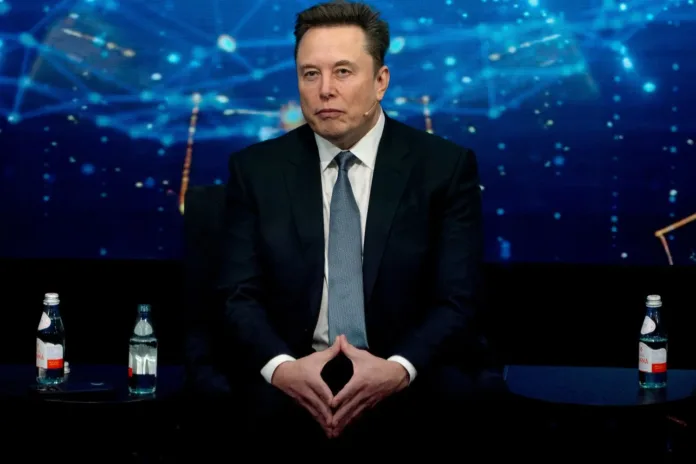Table of Contents
Elon Musk, CEO of Tesla, has shared a bold prediction about the future of work. Speaking at the U.S.-Saudi Investment Forum in Washington, D.C., Musk stated that within the next 10 to 20 years, work will become optional. He compared having a job to growing vegetables in a backyard garden—a task that is more laborious than buying vegetables at a store but still chosen by some who enjoy the process. Musk explained that in the future, people will be able to choose to work like they choose to play sports or video games today. This change will be driven by millions of robots entering the workforce, which will significantly boost productivity and reduce the need for traditional human labor.
Elon Musk’s Vision of an Optional Work Future
Musk’s ambitious plan extends beyond Tesla’s electric vehicles as he integrates his various business interests into a larger vision fueled by artificial intelligence (AI) and robotics. A cornerstone of this vision is Tesla’s Optimus humanoid robot project, which Musk aims to contribute approximately 80% of Tesla’s company value, despite ongoing production delays for the robots. This future, according to Musk, will redefine work as a personal choice rather than an economic necessity, fundamentally reshaping society’s relationship with labor.
Read more on our article of, Microsoft Azure Blocks Massive 15.72 Tbps DDoS Attack, published on November 22 2025, SquaredTech.
The Economic and Social Challenges of Automation
While Musk’s vision paints an optimistic picture, many experts remain cautious about how soon such a future can materialize and whether it will be beneficial for everyone. Economically, a major hurdle lies in the accessibility and affordability of the necessary robotics technology. According to Ioana Marinescu, an economist at the University of Pennsylvania, although AI costs have dramatically decreased in recent years, robotics remain expensive and specialized. This limits their ability to reach widespread use in the workforce quickly. Marinescu points out that even centuries of industrial advancements show diminishing returns in progressing certain technologies, indicating that robotics might not progress as rapidly as AI software.
Furthermore, there is concern about displacement of jobs, especially entry-level positions, which affects younger workers like Generation Z. Reports show that AI’s impact on the labor market has not yet caused a large disruption, but early evidence suggests challenges for workers whose roles are most vulnerable to automation. Flatlining income growth for young professionals adds complexity to this transition. The idea of a world with universal basic income or “universal high income,” which Musk touched on at Viva Technology 2024, echoes similar proposals from other tech leaders like OpenAI’s Sam Altman. These ideas promote regular government payments to individuals to help maintain economic stability as traditional jobs diminish.
Politically, implementing such a system will demand substantial willpower and restructuring. Samuel Solomon, a labor economics professor, emphasizes that the future success of automation depends not only on technology but also on inclusive political frameworks that ensure prosperity benefits everyone, not just a privileged few. Currently, wealth generated through AI development appears to widen the economic gap, highlighted by skyrocketing pay packages for tech executives like Musk and discrepancies in market earnings favoring certain companies while others lag.
Redefining Human Meaning and Work in an Automated World
Beyond the economics, there is the existential question of what a post-work society means for human purpose and satisfaction. Anton Korinek, director of the Economics of Transformative AI Initiative, stresses that humans derive significant meaning and social connection from their work. If automation diminishes the economic value of labor, society will need to find new ways for individuals to build meaningful relationships and find fulfillment. This challenge goes beyond technology and ventures deeply into cultural and social restructuring.
Elon Musk himself has pondered these questions. At the Viva Technology conference, he reflected on the role humans might have if machines outperform them in all tasks. Musk suggested that humans might still provide meaning to AI, implying a future where human creativity and values guide how AI operates and integrates into life. Musk’s reference to Iain M. Banks’ Culture series illustrates his hope for a future without scarcity, jobs, or money, where AI and advanced robotics create abundance and freedom for all.
Conclusion: Squaredtech’s Perspective on the AI Work Optional Future
Our views on Elon Musk’s prediction of an AI-driven, work-optional future as a groundbreaking vision that spotlights the transformative potential of AI and robotics. While the timeline and challenges Musk offers invite skepticism, the underlying idea aligns with ongoing technological advances pushing the boundaries of automation. We believe it is vital for policy makers, companies, and society to prepare for this transition by fostering inclusive economic models and redefining human roles beyond traditional employment.
Musk’s vision calls for a deep reconsideration of what work means and how society can support well-being in a world where money and jobs might not define value any longer. Such a future requires not only technological breakthroughs but also thoughtful social planning. Our rsearch Team will continue to monitor AI and robotics developments and support dialogues that bridge technological innovation with human-centered progress to help build a balanced, equitable future.
This detailed insight into Elon Musk’s AI work optional future highlights the profound shifts on the horizon, with implications for the economy, labor markets, and human identity itself—topics Squaredtech is committed to exploring and explaining for informed, broad audiences.
For more Updates: Artificial Intelligence


